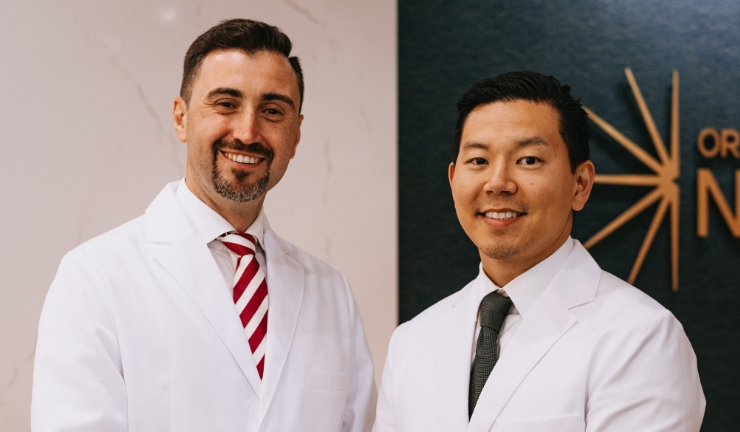The Dental Implant Process
Most patients complete their treatment with dental implants over multiple appointments. This allows our surgeons and their general dentist to create a stable, durable, and aesthetically appealing restoration.
How Long Are the Procedures and How Many Sessions Can Be Expected?
A typical treatment with dental implants includes three appointments:
- Surgery to place your dental implant, which may take 1-2 hours for a single implant.
- A follow-up procedure to uncover the implant. Not every patient will require this step.
- A visit to your general dentist, who will attach the new crown to the implant.
Most people will need about three months from the date of implant placement before visiting their general dentist for their new tooth. However, we can provide “Teeth in a Day” treatment for some patients, which creates the replacement tooth in a single visit. Patients may also benefit from supplementary procedures, such as tooth extraction and bone grafting, before receiving implants. (Learn more about when you may need a bone graft.)
Initial Appointments, Scan, and Custom Treatment Planning
During your initial consultation, we will spend a lot of time talking about how dental implants work, the timeline, and likely costs. Once you move forward with this treatment, you may have a separate records visit to take cone-beam CT and intraoral scans. The process is entirely comfortable and non-invasive.
After your doctor has planned your treatment digitally using these scans, we will go over the specifics of your surgery and guidelines to follow in advance of the procedure. Your doctor may also recommend that you receive bone or tissue grafts to strengthen the area before placing dental implants.
The Surgical Placement of Implants
We use a combination of digital workflow tools, surgical guides, and advanced imaging technology for our procedures. These resources allow your doctor to plan every aspect of your treatment, virtually “see” the internal structures of your tooth, and place dental implants very precisely.
During the surgery, your doctor will remove the existing tooth and anchor a dental implant into the bone beneath your gums. For a single implant, we will schedule a two-hour procedure to ensure that you have plenty of individual time, attention, and care.
The Placement of the Tooth Prosthetic
We will either place your implants below the gums or attach a healing abutment to each. Patients with implants below the gums will have a brief follow-up procedure to uncover these implants. When the implants have fully integrated with your jawbone, you will visit your general dentist, who will attach your final teeth.




